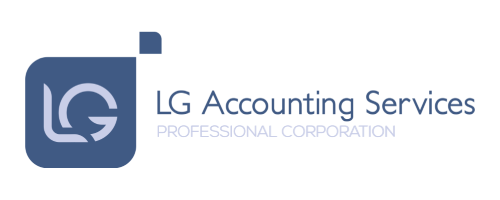Starting a small business – Frequently Asked Questions
Here are some of the questions about starting a business that come up frequently.
Q: I’m thinking about turning my hobby into a business. Do I have to form a corporation?
A: No, you don’t have to form a corporation to start a business. There are four basic business structures: sole proprietorship, partnership, corporation and co-operative. Most businesses start as sole proprietors, and then progress to becoming a partnership or corporation later.
Q: Are there any rules around how I name my business?
A: The rules around naming your business differ from state to state. Generally speaking, you can name your business what you like as long as it’s not a name that’s already in use. A NUANS Corporate Name Search will tell you if what you’ve come up with is unique.
The legal name of your business is required on all government forms and applications, including your application for employer tax IDs, licenses and permits. Once you’ve decided on it, you need to register it so that you can obtain a Business Number (BN) which is used for tax and payroll purposes.
Find out more about the requirements for naming and registering your business here.
Q: How do I check if someone else is using my preferred name?
A: You need to find out if someone else is already using your proposed name (or a very similar name) to market similar products or services. A NUANS Corporate Name Search will tell you if what you’ve come up with is unique.
Double-check by searching online and searching local business directories. If all these avenues show no one is using your preferred business name, you should be in the clear to go ahead. If by some unfortunate chance someone else is using the same name, you can at least show that you made a serious attempt to find a match.
Q: Must I register my business before I start up?
A: In most cases, yes. There are different requirements from state to state around registering a business, which you can find out about here.
Q: If I’m starting as a sole proprietor, should I open a separate bank account?
A: Yes, this will make life much easier for you and for your accountant, because it allows you to separate your business income and expenses from your private income and expenses. Visit your bank and ask for a separate account. Before the bank can open a separate business bank account, they will need to confirm who you are with three separate pieces of identification. You can choose any three from this list.
This separate business account typically be the same name as your business. Your business’s bank statements are usually the prime source of information for your accountant when they put together your accounts at the end of your first year in business.
Q: Should I use an accountant or attorney?
A: You can put in your own tax returns, or you can use an accountant. Ask friends already in business for recommendations, and choose an accountant who works with other small businesses. Your accountant should be able to save you money and stress by advising on what you can claim and how.
It’s also a good idea to consult an attorney about your business intentions, particularly if you intend to sign a lease or any legal document. Depending on your business, an attorney might advise you to take out public liability insurance or other forms of protection.
Q: Should I approach the Canada Revenue Agency?
A: Part of the Canada Revenue Agency’s (CRA) job is to offer help and information, including to new businesses. You’ll find their section on Business website useful for answering your basic questions about setting up a business and you can phone 1-800-959-5525 to ask business tax questions. The CRA website also lists various helpful publications you can order, pick up from your local CRA office, or download. There’s also a good FAQ (Frequently Asked Questions) section. Your tax dollars fund this service, so why not make full use of it? You can ask for free advice even if you’re just thinking about starting a business.
Q: Can you briefly explain the pros and cons of the different business structures?
A: At the risk of oversimplifying, here’s a broad outline of the differences.
- As a sole proprietor, you are the business and the business is you. Most people start this way because it offers low-cost, easy entry, but the disadvantage is that you are totally responsible for the debts and liabilities of your business. You’ll be taxed on your income from the business at individual tax rates. Learn more about the tax forms a sole proprietor needs to file here.
- A partnership is a business where two or more people share ownership. Partnerships are generally simple and inexpensive to form, though developing the partnership agreement can take some time. All partners contribute to the business, often bringing complementary skills and resources or pooled finances, and all partners share in the profits and losses of the business. You are taxed at individual tax rates on your income from the partnership. The disadvantages are your personal liability not only for your own debts and business decisions, but also for partnership debts incurred and business decisions made by your partner(s). In addition, partnerships come with the risk of disagreements and disputes between partners. Read more about partnerships here.
- A corporation is literally a business that’s incorporated, and can be done at the federal or state level. It’s a separate entity from its shareholders, who are not liable for the debts, obligations or acts of the corporation. You can find out more about corporations here.
- A co-operative is the least common of the Canadian business structures. It’s controlled by an association of members, which is why it’s mostly used for non-profits. Read more about co-operatives here.
Q: Should I write a Business Plan for my business?
A: Creating a Business Plan is a good idea, for several reasons. First, the research and thought you’ll have to put into writing the business plan will help you to sharpen and/or adjust your ideas. In addition, any lending institution that you approach for funds, such as a bank, will want evidence that you’ve done your homework and thought through your business concept.
Finally, the business plan provides a road map for your business. It lays out what you intend to do, how you intend to do it, the resources you need, and your action deadlines for each stage. The business plan forms a ‘living document’ that you can then revisit at regular intervals and modify according to your progress or changing circumstances.
Q: What help and/or funding is available for small businesses?
A: The best place to start when it comes to grants and financing for small businesses is the Canada Business Network. Here you’ll find information on all the different ways you can raise capital for your business, from government grants to private sector financing, from non government organizations to crowd-funding. It’s a good idea to look into all the options that are available, since the Canadian Government supports small business and often has grants and subsidies in place to help you get started and to grow.
Q: Do I need business skills or experience to start a small business?
A: The failure rate of small business start-ups is high. One major reason is lack of business skills. Therefore, yes, you should systematically set about improving your business skills.
Perhaps the most important ingredient you need to succeed is enthusiasm and drive, backed by persistence and a determination to achieve your goals no matter how much hard work is involved. But you’ll greatly improve your chances of success if you have good business skills. These include the skills to market your business in a creative and sustained way and the skills to build and manage efficient business systems that enable the business to operate smoothly.
Many people start small businesses because they’re good at something or can offer specialist knowledge. They often fail because their other business skills are poor, or they spent little time on the ‘boring’ aspects of their business. It seems more fun to do what you enjoy doing than to keep the book work up to date, chase debtors, invoice promptly, do a cash flow forecast, or manage tax liabilities, so these tasks are neglected, and the business suffers.
Another major reason for failure is lack of experience in the chosen industry. The solution is to work in the industry before you start or buy a business in that industry – even if you have to work for low wages or just for the work experience. The idea of running a Bed & Breakfast might seem like an easy way to make money, until you’ve actually tried it and learned about the hard work and energy required. Managing a coffee shop might seem great until you experience the long hours and pressure that hospitality work often involves. Learn about the advantages and the disadvantages of the industry you’re interested in before you take the plunge.

